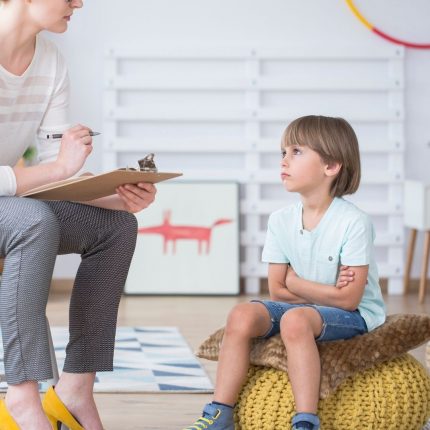
5 Secrets to Teaching Effective Listening
October 12, 2020Are you wondering how to get your children to listen?
“Am I not being clear?!”
“Are you hard of hearing?”
“Why won’t you listen to me?”
“Can you shut it for a second and hear me out?!”
Your child won’t listen to you? Don’t worry – we’ve all been there. Sooner or later, every parent faces this problem. It’s important to address this dilemma early on in their (and our) lives. How do you get your kid to listen without yelling and getting frustrated? It is not easy but there is a way! It requires ALOT of practice and ALOT of perseverance from both the parents and the child!
What Does it Mean to Listen Effectively?
What is listening? And, more importantly, what makes a person a good listener? According to Marvin Gottlieb (Ph.D. and CEO at The Communication Project), effective listening combines the following four qualities:
- Attention. According to the dictionary, attention is the notice taken of someone.
- Hearing, according to the dictionary is the faculty of perceiving sounds.
- According to the dictionary, understanding is an individual’s perception or judgement of a situation.
- To remember, according to the dictionary is to have in or be able to bring to one’s mind an awareness of (someone or something from the past).
If all of these elements are blended and applied, you can be certain that your child has heard you and drawn correct conclusions from your words.
Why is it Important to Listen?
Teaching your child how to listen is critical for forging his character.
- Listening is the basis of human relationships. According to Rachel Naomi Remen, an act of hearing is the most effective way to connect to others. Attention and understanding are two of the most important things that people can give to each other.
- Teaching your child how to effectively listen improves his or her capability to process information and gain new knowledge.
- Listening improves empathy and helps a person acquire leadership qualities. You can read this article by Brigette Hyacinth (Author of Leading the Workforce of the Future) to learn more about how effective listening determines the quality of a person’s influence in society.
5 Secrets to Get Your Child to Listen
It is not easy to teach these secrets to your kid. But, it is important to begin the teaching when your child is really young!
SECRET #1
BE STILL. Get close to your kid and make sure that he is aware of the fact that he needs to pay attention. Talking or any activity must cease before the conversation starts.
SECRET #2
SIMPLIFY. Don’t overload your kid with information. If you want to convey a clear message – be as concise as possible.
SECRET #3
EYE-CONTACT. Make your child looks at you whenever you are talking. Eye-contact will ensure that your kid doesn’t treat your words as background noise.
SECRET #4
REMAIN CALM. Congratulations, you have your child’s attention! Convey your message calmly. Your kid is more likely to process the information and understand the importance of your words, when your words are expressed in a calm voice.
SECRET #5
NOTE-TAKING. Once your child knows how to write, introduce him to doodling; the fun word for note-taking. This action will improve his focus during the absorption of information.
These are the fundamentals of efficient communication with your child. Remember that it’s hard to properly discipline a child who doesn’t like being told what to do. However, practice makes perfect. It will take some time, but effort and dedication will make your child an effective listener.
Discover more ways to get your kid to listen with this article by Dyan Robson. You’ll also want to read additional articles from Kath Denholm as well as a recent podcast with her and her husband, a.k.a “The Memory Guy!”
Teaching Your Child Thinking Skills
Episode 38: Practical Tips for Improving Memory
More about the author, Kath Denholm
 Kath lives with her husband and 3 young children in a small coastal town in South Africa. She is a speech therapist, who worked in London, Private Practices in Cape Town and KZN and then finally taught at Livingstone Remedial School in KZN, South Africa for 3 years. During this time, Daren Denholm, her memory guru husband, trained her up to compete with him at the 2011 World Memory Championships in China, while she was 6 months pregnant with their first child! The Chinese competitors complained that she was cheating because she had 2 brains. She sat next to the youngest competitor, a 9-year-old Chinese girl. It was at this point that the Online Little Genius Puppets program was conceived.
Kath lives with her husband and 3 young children in a small coastal town in South Africa. She is a speech therapist, who worked in London, Private Practices in Cape Town and KZN and then finally taught at Livingstone Remedial School in KZN, South Africa for 3 years. During this time, Daren Denholm, her memory guru husband, trained her up to compete with him at the 2011 World Memory Championships in China, while she was 6 months pregnant with their first child! The Chinese competitors complained that she was cheating because she had 2 brains. She sat next to the youngest competitor, a 9-year-old Chinese girl. It was at this point that the Online Little Genius Puppets program was conceived.
Latest Posts

Guest Post by Gabriel Morse For several years, I sat for long hours every day behind one of those battleship gray desks in a windowless, dull, gray office. The pay was enough to take care…
Read more >
This post is sponsored by Little Monsters Universe. I'm Tina Salmanowitz, an advocate for homeschooling and science education. With over a decade of experience as a science educator (in class…
Read more >
This post is sponsored by Time4Learning. Before the pandemic, it was business as usual for Boca Raton resident Nikki Warris. Her two daughters, 5-year-old Natalie and 8-year-old Lexi were…
Read more >

